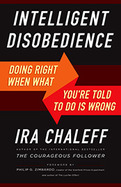BK Blog Post
Five Lies Writers Are Told
 Posted by
Jeevan Sivasubramaniam,
Vice President, Editorial,
Berrett-Koehler Publishers Inc.
Posted by
Jeevan Sivasubramaniam,
Vice President, Editorial,
Berrett-Koehler Publishers Inc.
 Because the world of publishing remains inscrutable, many writers find themselves being told lies by well-meaning friends and colleagues. These friends and colleagues don’t intend to mislead their writer-friends, but they do.
Because the world of publishing remains inscrutable, many writers find themselves being told lies by well-meaning friends and colleagues. These friends and colleagues don’t intend to mislead their writer-friends, but they do.Here are five of the most common bits of “advice” given to writers by people who really don’t know better.
1. “Be careful about circulating this around. Someone will steal it.”
Incidents of literary theft remain rare, despite what you may see in the movies or elsewhere. But the best way to establish ownership of a work is to publish it - on a blog on the web, in an article, or whatever (you don’t have to publish the whole thing, just the core idea). Letting the world know that you wrote it and interacting with those who read it and offer feedback is the best way to keep someone from stealing it. The great thing about the web and all publications in general - they record the date on which your article was published, so if someone attempts to steal your work, they would need to show an earlier date of publication to yours.
2. “If you’ve got the whole manuscript draft already, skip the proposal and just send the whole thing to the publisher for consideration for publication.”
No, please don’t do that. A book proposal contains all sorts of valuable information such as biographical information, marketing ideas, competing titles, details about length and format, and much more - all of which are needed to assess a potential publication. Also, in no publishing house will you find an employee whose sole responsibility is to review incoming proposals. This means that the person handling this duty in any given house already does a bunch of other things. They don’t have the time to read your entire manuscript to see if your ideas are any good, but they do have the time to read the synopsis and chapter outline that will be part of your proposal packet.
3. “Get an agent. No publisher takes you seriously unless you have representation.”
Getting an agent is a very good idea: they can negotiate the best deal for you and often have connections with editors in numerous publishing houses. And because of this belief, agents receive way more proposals than most publishers, and seeing as most literary agencies operate with a staff in the single digits, getting a response can be tricky if not time-consuming. But not all publishers require representation. Check out the proposal guidelines on the websites of publishers who publish in your genre. You’d be surprised how many established houses don’t require agency representation.
4. “That idea is so good, you should copyright this work and maybe even trademark the title.”
You can’t trademark a book title, nor are trademarked names protected by law when it comes to book titles. This is that whole freedom of the press thing - if you want to write a scathing critique of Microsoft, you should be able to use the trademarked name Microsoft in your title if you want. Keep in mind that limitations exist around such usage, however - for example, it has to be clear that you are not representing Microsoft in any way or profiting from their name in titling your book that way (unless, of course, you get permission from them to do so first). And no, while you can copyright works, you can’t copyright ideas because the law recognizes that two people can have the same idea at the same time without ever having met each other. If someone has the same idea as you, that’s just tough (unless they have the same idea and the same characters and names for things as you do - then it’s easier to prove copyright violation).
5. “My friend is a lawyer and he can look at the publication contract and make sure everything is good.”
Here’s the thing: publication contracts are not like regular contacts. There are different factors and conditions based on the restrictions put upon us by this industry, so unless the lawyer is someone who specifically deals with publishing agreements, he or she is going to just annoy the publisher by making ridiculous demands on your behalf, which will not help you in any way. Don’t get me wrong, having a qualified lawyer is a very good thing when it comes to looking over contracts, but the key word is QUALIFIED - competent in publishing contracts. Getting your tax attorney brother-in-law to give your contract the once-over is not going to help you, I assure you.






